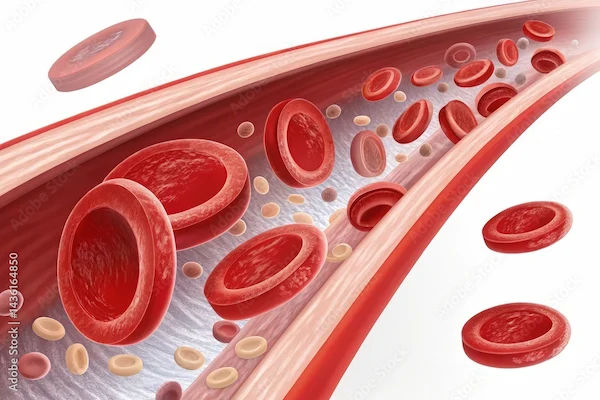Nephrotic Syndrome Overview and Management Options
Learn about Nephrotic Syndrome—its symptoms, causes, and health impact. Explore treatment options, dietary tips, and lifestyle changes to manage the condition effectively and protect kidney health.

Written by Dr. J T Hema Pratima
Reviewed by Dr. Rohinipriyanka Pondugula MBBS
Last updated on 13th Jan, 2026

Introduction
Nephrotic Syndrome is a kidney disorder that can affect people of all ages, including children and adults. It occurs when the kidneys leak large amounts of protein into the urine, leading to swelling, fatigue, and other health concerns. While it can be a serious condition, proper management and treatment can help patients lead a healthy life.
In this article, we’ll discuss what Nephrotic Syndrome is, its symptoms, causes, and how it impacts health. We’ll also share practical tips on managing the condition and when to seek medical help.
What is Nephrotic Syndrome?
Nephrotic Syndrome is not a disease itself but a group of symptoms that indicate kidney damage. The kidneys contain tiny filters called glomeruli, which help remove waste from the blood while keeping essential proteins inside. In Nephrotic Syndrome, these filters become damaged, allowing too much protein (especially albumin) to pass into the urine. This leads to:
Proteinuria (high protein in urine)
Hypoalbuminemia (low protein in blood)
Oedema (swelling, usually in legs, feet, or face)
High cholesterol levels
Symptoms of Nephrotic Syndrome
The most common signs include:
1. Swelling (Edema) – Often seen in the feet, ankles, and around the eyes, especially in the morning.
2. Foamy or Frothy Urine – Due to excess protein leaking into the urine.
3. Fatigue and Weakness – Caused by low protein levels in the blood.
4. Weight Gain – Due to fluid retention.
5. Loss of Appetite – A common symptom in both children and adults.
6. High Cholesterol – The liver produces more cholesterol to compensate for lost proteins.
If you notice these symptoms, it’s important to consult a doctor for proper diagnosis and treatment.
Consult a Nephrologist for the best advice
What Causes Nephrotic Syndrome?
Nephrotic Syndrome can result from various kidney diseases, including:
Minimal Change Disease (common in children)
Focal Segmental Glomerulosclerosis (FSGS)
Membranous Nephropathy
Diabetes-Related Kidney Damage
Lupus or Other Autoimmune Diseases
Infections (like Hepatitis B/C or HIV)
Sometimes, the exact cause is unknown (idiopathic Nephrotic Syndrome).
How Does It Affect Health?
If left untreated, Nephrotic Syndrome can lead to complications such as:
Blood Clots – Due to loss of proteins that prevent clotting.
High Blood Pressure – Damaged kidneys may struggle to regulate blood pressure.
Infections – Low protein levels weaken the immune system.
Kidney Failure – In severe cases, prolonged damage can reduce kidney function.
Early diagnosis and proper treatment can help prevent these complications.
Management and Treatment Options
While Nephrotic Syndrome requires medical supervision, certain lifestyle changes and treatments can help manage symptoms effectively.
1. Medical Treatments
Corticosteroids (like Prednisone) – Often the first line of treatment to reduce protein leakage.
Immunosuppressants – Used if steroids don’t work or in recurring cases.
Diuretics (Water Pills) – Help reduce swelling by removing excess fluid.
Blood Pressure Medications (ACE Inhibitors/ARBs) – Protect the kidneys and reduce protein loss.
Cholesterol-lowering Drugs – To manage high cholesterol levels.
2. Dietary Changes
A kidney-friendly diet can help manage symptoms:
Reduce Salt Intake – Excess salt worsens swelling. Avoid processed foods, pickles, and salty snacks.
Moderate Protein Intake – Too much protein can strain the kidneys, but too little weakens the body. Consult a doctor for the right balance.
Limit Saturated Fats – Helps control cholesterol. Choose healthy fats like olive oil, nuts, and fish.
Stay Hydrated – But avoid excessive fluids if swelling is severe.
Low-Sugar Diet – Especially important for diabetic patients.
3. Lifestyle Adjustments
Regular Exercise – Helps maintain a healthy weight and blood pressure.
Avoid Smoking and Alcohol – Both can worsen kidney damage.
Monitor Blood Pressure & Sugar Levels – Essential for preventing further kidney harm.
Get Vaccinated – Since infections can trigger relapses, flu and pneumonia vaccines are recommended.
4. When to See a Doctor?
If you or your child experiences:
Severe swelling
Sudden weight gain
Foamy urine
Frequent infections
Seek medical advice immediately. Early treatment improves outcomes.
Can Nephrotic Syndrome Be Cured?
In some cases, especially in children, the disease may go into remission with treatment. However, adults may need long-term management to control symptoms and prevent kidney damage. Regular follow-ups with a nephrologist (kidney specialist) are crucial.
When to Consider a Consultation?
If you suspect Nephrotic Syndrome or have persistent symptoms, booking a consultation with a specialist is important. Apollo24|7 offers expert nephrology consultations and diagnostic tests to help manage kidney health effectively.
Final Thoughts
Nephrotic Syndrome can be challenging, but with the right treatment and lifestyle changes, patients can lead a healthy life. If you or a loved one is experiencing symptoms, don’t hesitate to seek medical help. Early intervention makes a big difference!
Would you like to consult a kidney specialist or schedule a test? Visit Apollo24|7 today for expert care and support.
Consult Top Nephrologist
Consult a Nephrologist for the best advice

Dr. Manju Kamal
Nephrologist
12 Years • MBBS,MD(General Medicine), DNB,DM(Nephrology)
Angamaly
Apollo Hospitals Karukutty, Angamaly

Dr. Vamsee Priya Marina
Nephrologist
13 Years • MBBS, MD (Internal Medicine), MD (Nephrology), Diplomate American Board of Internal Medicine
Hyderguda
Apollo Hospitals Hyderguda, Hyderguda
(50+ Patients)

Dr. Sunil Jawale
Nephrologist
17 Years • MBBS, MD (Internal Medicine), DM (Nephrology)
Pune
Apollo Hospitals Pune, Pune

Dr. Kavita Parihar
Nephrologist
26 Years • MBBS, MD(MED), DNB(NEPHRO)
Ahmedabad
Apollo Hospitals Gandhinagar, Ahmedabad
(25+ Patients)

Dr. Pooja Banerjee. Kidney Transplant Physician
Nephrologist
12 Years • MBBS,MD(Gold Medalist), MRCP UK, CCT London(Renal Medicine and Transplant)
Kolkata
Apollo Multispeciality Hospitals , Kolkata, Kolkata
(375+ Patients)
Consult Top Nephrologist

Dr. Manju Kamal
Nephrologist
12 Years • MBBS,MD(General Medicine), DNB,DM(Nephrology)
Angamaly
Apollo Hospitals Karukutty, Angamaly

Dr. Vamsee Priya Marina
Nephrologist
13 Years • MBBS, MD (Internal Medicine), MD (Nephrology), Diplomate American Board of Internal Medicine
Hyderguda
Apollo Hospitals Hyderguda, Hyderguda
(50+ Patients)

Dr. Sunil Jawale
Nephrologist
17 Years • MBBS, MD (Internal Medicine), DM (Nephrology)
Pune
Apollo Hospitals Pune, Pune

Dr. Kavita Parihar
Nephrologist
26 Years • MBBS, MD(MED), DNB(NEPHRO)
Ahmedabad
Apollo Hospitals Gandhinagar, Ahmedabad
(25+ Patients)

Dr. Pooja Banerjee. Kidney Transplant Physician
Nephrologist
12 Years • MBBS,MD(Gold Medalist), MRCP UK, CCT London(Renal Medicine and Transplant)
Kolkata
Apollo Multispeciality Hospitals , Kolkata, Kolkata
(375+ Patients)


.webp)

